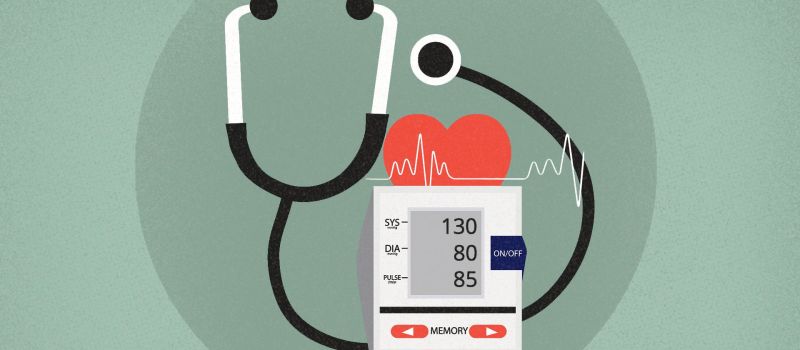The connection between hormones and hypertension
By Canada Cloud Pharmacy | Published Wednesday 28 April 2021

High blood pressure or hypertension is a common condition that affects many people globally. Hypertension is regarded as a silent killer as most people may not have symptoms of high blood pressure. However, hypertension is a major health concern as it is associated with several cardiovascular events such as stroke, heart attack and kidney-related problems.
What is do you mean by high blood pressure?
As blood flows through the arteries, it exerts pressure on the walls, this is measured as blood pressure in mm of Hg (millimeters of mercury). While 120/80 mm of Hg is the normal blood pressure (120 being the pressure when the heart contracts and 80 being the measurement when it relaxes), blood pressure above 130/90 mm of Hg is high blood pressure. You may have primary hypertension or secondary hypertension. While primary hypertension has no known cause, secondary hypertension happens due to some underlying disease condition such as excess secretion of hormones (hyperaldosteronism).
How does the hormone aldosterone affect blood pressure?
Several studies indicate that hormones affect the blood pressure levels in many people. One in every fifteen people who have hypertension also has a hormonal imbalance of aldosterone. The adrenal gland located near your kidneys produces the hormone aldosterone.
Aldosterone is responsible for maintaining the sodium, potassium and water levels in your blood. Some people may suffer from an endocrine disorder that involves, excess secretion of aldosterone by the adrenal glands. The condition is referred to as hyperaldosteronism. Excess levels of aldosterone in the blood result in the retention of sodium, potassium and water in the body. As a result, the blood pressure in such people is always high.
What causes aldosterone levels to rise?
The adrenal gland produces high levels of aldosterone due to the following reasons:
-
Conn’s syndrome: The presence of a non-cancerous growth over the adrenal glands increase the secretion of aldosterone.
-
Idiopathy: Some people may have hyperactive adrenal glands which secrete excess aldosterone for unknown reasons.
What are the symptoms of hypertension due to high aldosterone levels?
You may notice the following symptoms if aldosterone is causing hypertension:
-
Headache
-
Chest pain
-
Shortness of breath
-
Muscle cramps
-
Increased thirst
How will you diagnose if your blood pressure is due to excess aldosterone hormone?
According to recent research doctors now order some diagnostic tests to find out whether your hypertension is linked with the hormone aldosterone. Your doctor may order the following tests:
-
Blood tests: To test the levels of sodium and potassium ions and testing of the blood sample from the adrenal vein to test aldosterone levels
-
Sonography, CT (Computed tomography) or MRI (Magnetic Resonance Imaging): To scan for the presence of growth on the adrenal gland.
The good news is that hyperaldosteronism is treatable with aldosterone blocking medications like Eplerenone (Inspra) and Spironolactone (Aldactone). These medicines will also help to keep blood pressure levels normal. Visit a doctor and get tested if you notice any of the above symptoms.



 Canadian Company
Canadian Company 



 Sign In
Sign In
 Home
Home 
 About Us
About Us 
 How to order
How to order 
 Products
Products 



